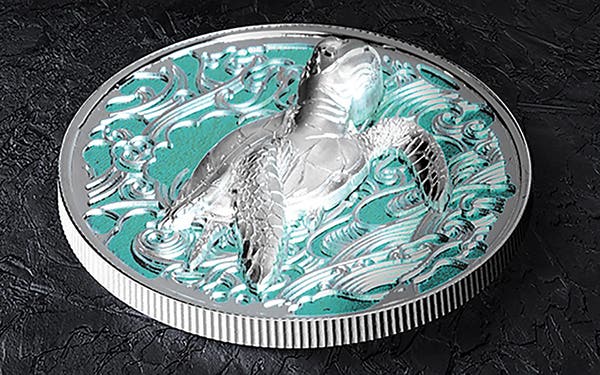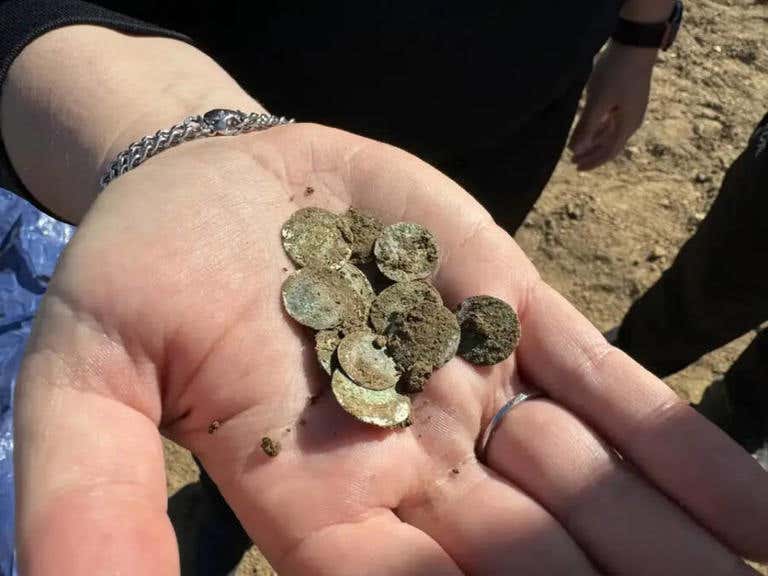Spain Serious About Stopping Smuggling
Spanish police have described the most recent seizure as “exceedingly rare ancient Greek, Iberian, and Roman coins.”
Spain means business. When hundreds of Roman coins along with related artifacts were excavated by late-night entrepreneurs in the province of Cáceres, the Spanish Ministry of the Interior didn’t hesitate to arrest six people.
Spanish authorities have been busy. According to an April 5, 2024, Organized Crime and Corruption Reporting Project bulletin, “Spanish authorities recovered 191 trafficked archaeological pieces that were offered for sale on social media networks in Seville.”
While coins are the main focus of this article, it can’t be overlooked that among more than 6,400 items recovered in September 2023 were the world’s oldest daisy flower fossil and a complete duck-billed dinosaur skeleton, each having been smuggled into Spain from Argentina, three years earlier.
Spanish authorities have their hands full. Following the recent arrests, the Spanish Ministry of Interior released a statement explaining, “The criminal group used sophisticated metal detection devices to carry out a systematic sweep of the interior of the protected areas, always at night,” adding that some of the objects were sold for “prices well below their real value in the legal market.”
The Spanish Civil Guard police said, “Within the closed and complex world of the art market, we found that the people we investigated were living a normal — not luxurious — life, acting at different times of the day to go completely unnoticed and put the historical goods on the black market, thereby obtaining great financial benefits.”
Six people may have been arrested, but at the time this article was being written, at least three more were under investigation in connection to more than 2,500 additional coins that had been looted. The Argentinian connection is serious, too. Spain returned more than 6,400 items that had been illegally imported.
Coins are continuously being smuggled throughout parts of the world, but what coins are being seized in this case matters. Among them is a Roman silver denarius of Brutus dating to 44 B.C. Spanish police have described the recent seizure as “exceedingly rare ancient Greek, Iberian, and Roman coins.”
The Old Upper City of Cáceres, known as Norba Caesarina by the Romans, is a UNESCO World Heritage site. Norba Caesarina was founded in 34 B.C. by the proconsul C. Norbanus Flaccus and Gaius Julius Caesar. The cognomen Caesarina was added in memory of Caesar. The town is mentioned by Pliny (4.117), Ptolemy (2.5.6), and in an inscription (CIL II, 694). The UNESCO site is surrounded by massive, turreted walls that are half Roman and half Moorish. The city came under Moorish control during the ninth century.
Iberian Roman coins are primarily bronze. Many of the coins of colonial towns that were produced under Roman authority have Latin inscriptions. The number of towns producing coins for the Romans reached its height in the final third of the second century and early first century and then declined rapidly in the early first century, particularly in Hispania Citerior after the end of the Sertorian War. The Sertorian War was fought in 80 to 72 B.C. between a Sertonian Roman rebel faction and the central government of Rome.
The Spanish arrests are part of an international effort called Operation Pandora to stop illegal cultural goods trafficking. A May 4, 2023, report indicated that more than 60 persons had been arrested and more than 11,000 objects, including coins, had been seized due to OP.
The most recent effort, known as Pandora VII, involved Austria, Bulgaria, Czech Republic, Croatia, Cyprus, Greece, Ireland, Italy, Poland, Portugal, Romania, Spain, Sweden and Bosnia and Herzegovina. The Polish Police Service seized 3,073 ancient coins from an online sales platform. Romanian law enforcement recovered 117 Dacian and Roman coins from an archaeological site looted in 2022.
According to a translation of Article 46 of Spain’s cultural heritage law, “The public authorities shall guarantee the preservation and promotion of the enrichment of the historical, cultural and artistic heritage of the peoples of Spain and of the property that comprises it, whatever its legal status and ownership. Criminal law shall punish any offenses against this heritage.”
You may like:








